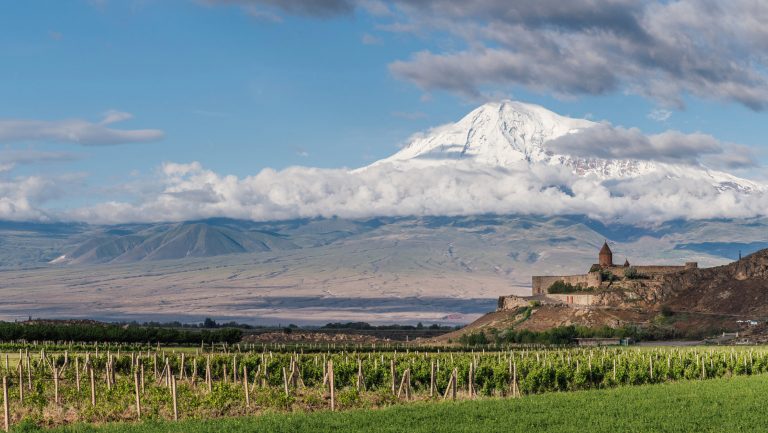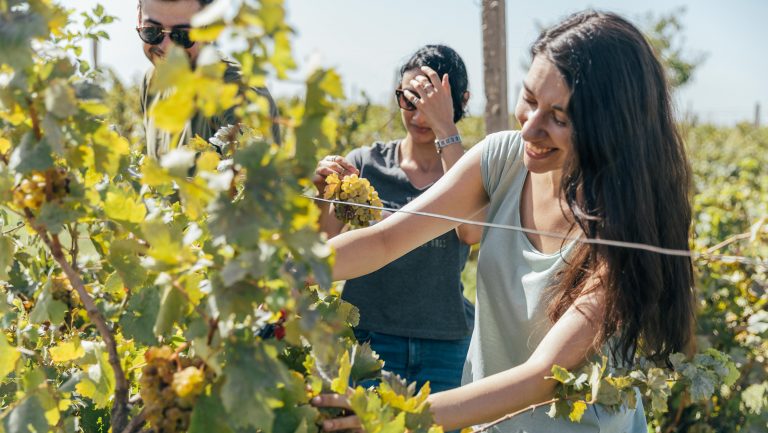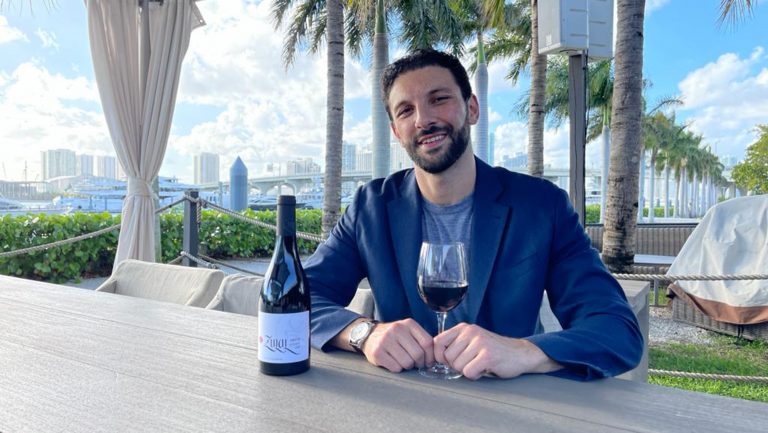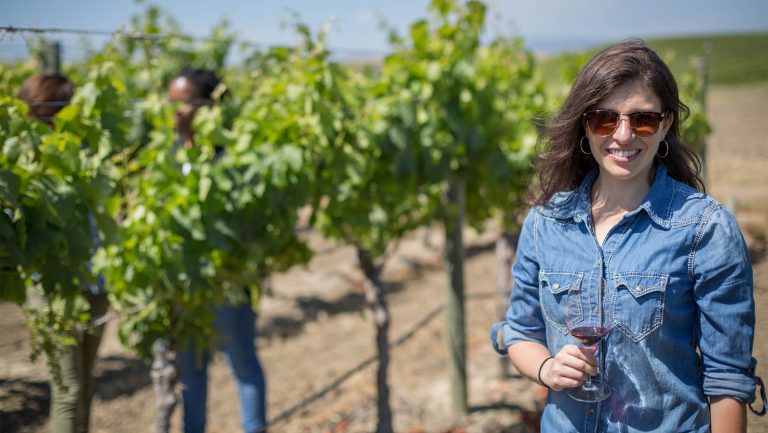As someone who grew up close to his Armenian heritage in New York, Zack Armen has long felt compelled to engage in activities that benefited his ancestral homeland as well as its diaspora. It wasn’t until he founded Storica Wines, though, that he discovered how to do so in a way that was not only multi-generational, but scalable.
Like so many others in the wine industry, Armen’s personal and professional path has been varied. He began his career in the world of financial services, which equipped him with key skills such as managing profit and loss statements and projecting future returns, that became foundational for launching an import company. Storica, which was founded in 2018, now holds the designation of being the leading import, sales, and marketing company for Armenian wines to the United States.
Storica began as a tight-knit team of four, but they now have 19 employees working virtually and on the ground in order to help draw attention to a lesser-known part of the world. In Armen’s words: “Our company’s core mission is to build the Armenian wine category in the U.S. market by working with select wineries that are producing fine wine with indigenous varietals.” With 500 retailers and restaurants under their belt spanning 23 states from California to Louisiana, they are fast working toward that objective. In 2022, for instance, they sold 4,773 nine-liter cases of wine; In the first four months of 2023 alone, they sold 3,055, nearly triple the previous year.

Don’t miss the latest drinks industry news and insights. Sign up for our award-winning newsletters and get insider intel, resources, and trends delivered to your inbox every week.
In total, they have seven different brands from five different producers, such as Keush, which produces traditional method sparkling wine from indigenous grape varieties, and Voskevaz, renowned for fermenting their wine in clay amphorae. Storica’s goal is to increase the volume of sales in each of the states they currently distribute to, as well as nearly doubling the number of states in the next few years. For now, however, they are focused on channeling their efforts and resources toward building upon the brands they currently carry and strengthening relations with their clients, including James Beard award-winning restaurants like Galit in Chicago and O ya, Boston.
What was the impetus for founding Storica? Why did you decide to solely focus on Armenian wines?
Zack Armen: I visited Armenia pretty much every year over the last 20 years, but the idea of Storica Wines was inspired by a trip I took there in 2017. I noticed that there was seemingly all of a sudden a lot of really great wine produced from indigenous grapes by local Armenian wineries. So, being curious, I started to ask questions as to what was stimulating this wine movement. That was when I met the dynamic father and daughter team that is Vahe and Aimee Keushgerian, two of the leaders of this wine renaissance [and the founders of Zulal].
Over the course of many months after my visit, they explained Armenia’s unique terroir and heritage of winemaking to me. Their insights and passion were highly compelling. I not only saw an opportunity, but felt a responsibility to share the beautiful story of Armenia’s ancient traditions and modern wines with the U.S.

What You Need to Know About Armenian Wine
High-profile winemakers aren’t the only ones who’ve discovered the country’s wines—here’s what to try
It soon became apparent how important it was for Armenia as a wine region to create a robust presence in the U.S. marketplace. Upon doing further research, I took it upon myself to develop a business plan that supports the growth of this category in the States, delivering a really valuable outcome to the Armenian economy via wine sales and wine tourism.
How do you find and select wineries to work with?
We select wineries based on a pretty rigorous evaluation process that is led by our general manager Ara Sarkissian. Included in that is a focus on the styles and quality of wine that U.S. trade and consumers are looking for and the appropriate price points at which these wines will find demand. We also think about how these wines will fit into our portfolio and whether they will be complementary or disruptive and competitive with the existing brands. This process is repeated every year as [more] Armenian wineries seek representation.
How do you make inroads with new buyers?
Because we aim to gain a foothold in a majority of states, we have a pretty involved and proactive process in order to reach out to distributors in those which we’re not yet represented. We invest heavily in a team of seasoned wine professionals to travel the country visiting on- and off-premise accounts along with our distributors to ensure staff as well as consumers have an opportunity to hear about the unique terroir and attributes of Armenian wine directly from us. This helps create context within which the wines can be understood.

What challenges did you face while building your business, and, specifically, what challenges are there of working with less-established wine regions?
We faced a lot of challenges in our first two-and-a-half years of operations that we have learned a lot from. Even though we have unique wines that offer great quality and value, there’s still a lot of risk aversion in this industry post COVID. That, however, has been counterbalanced by consumers and wine professionals who consistently seek out quality wines that are new, adventurous, and off-the-beaten path. We strongly believe that those will ultimately win out over the risk aversion that exists in the middle of the value chain.
What is changing in the consumer market? Do you see increasing interest in the region?
Wine drinkers are always looking to explore new categories and interest in emerging categories is on the rise. Armenia, with its ancient winemaking history and unique extreme elevation viticulture, stands to gain from that.

Dispatch
Sign up for our award-winning newsletter
Don’t miss the latest drinks industry news and insights—delivered to your inbox every week.
Angela Brussel is a Beirut-based freelance journalist and writer focusing on arts and culture whose work has appeared in Los Angeles Review of Books, New Statesman, and Literary Hub to name a few. She spent over a decade working in the hospitality industry.






